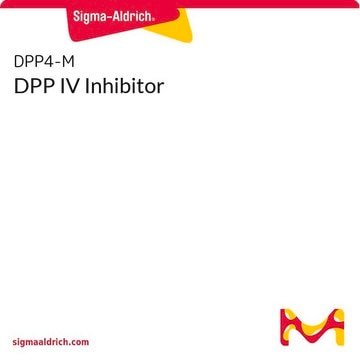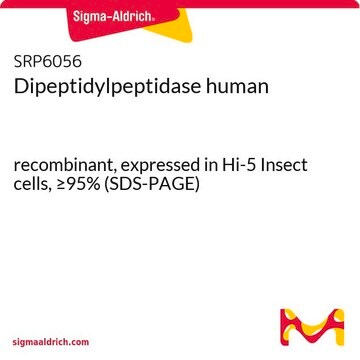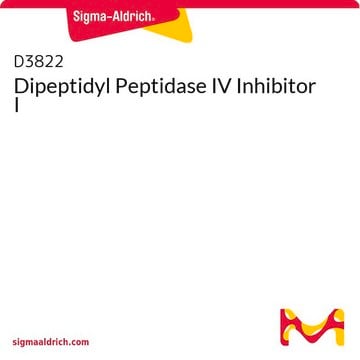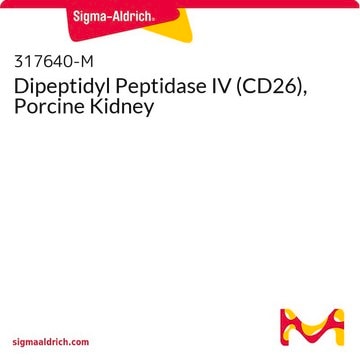MAK088
DPP4 Activity Assay Kit
sufficient for 100 fluorometric tests
Synonym(s):
CD26 Activity Assay Kit, Deaminase Complexing Protein 2 Activity Assay Kit, Dipeptidyl Peptidase-4 Activity Assay Kit
About This Item
Recommended Products
usage
sufficient for 100 fluorometric tests
detection method
fluorometric
storage temp.
−20°C
Gene Information
human ... DPP4(1803)
mouse ... DPP4(13482)
rat ... DPP4(25253)
General description
Application
Features and Benefits
Suitability
Principle
Storage Class Code
10 - Combustible liquids
WGK
WGK 3
Flash Point(F)
188.6 °F - closed cup
Flash Point(C)
87 °C - closed cup
Certificates of Analysis (COA)
Search for Certificates of Analysis (COA) by entering the products Lot/Batch Number. Lot and Batch Numbers can be found on a product’s label following the words ‘Lot’ or ‘Batch’.
Already Own This Product?
Find documentation for the products that you have recently purchased in the Document Library.
Customers Also Viewed
Our team of scientists has experience in all areas of research including Life Science, Material Science, Chemical Synthesis, Chromatography, Analytical and many others.
Contact Technical Service







